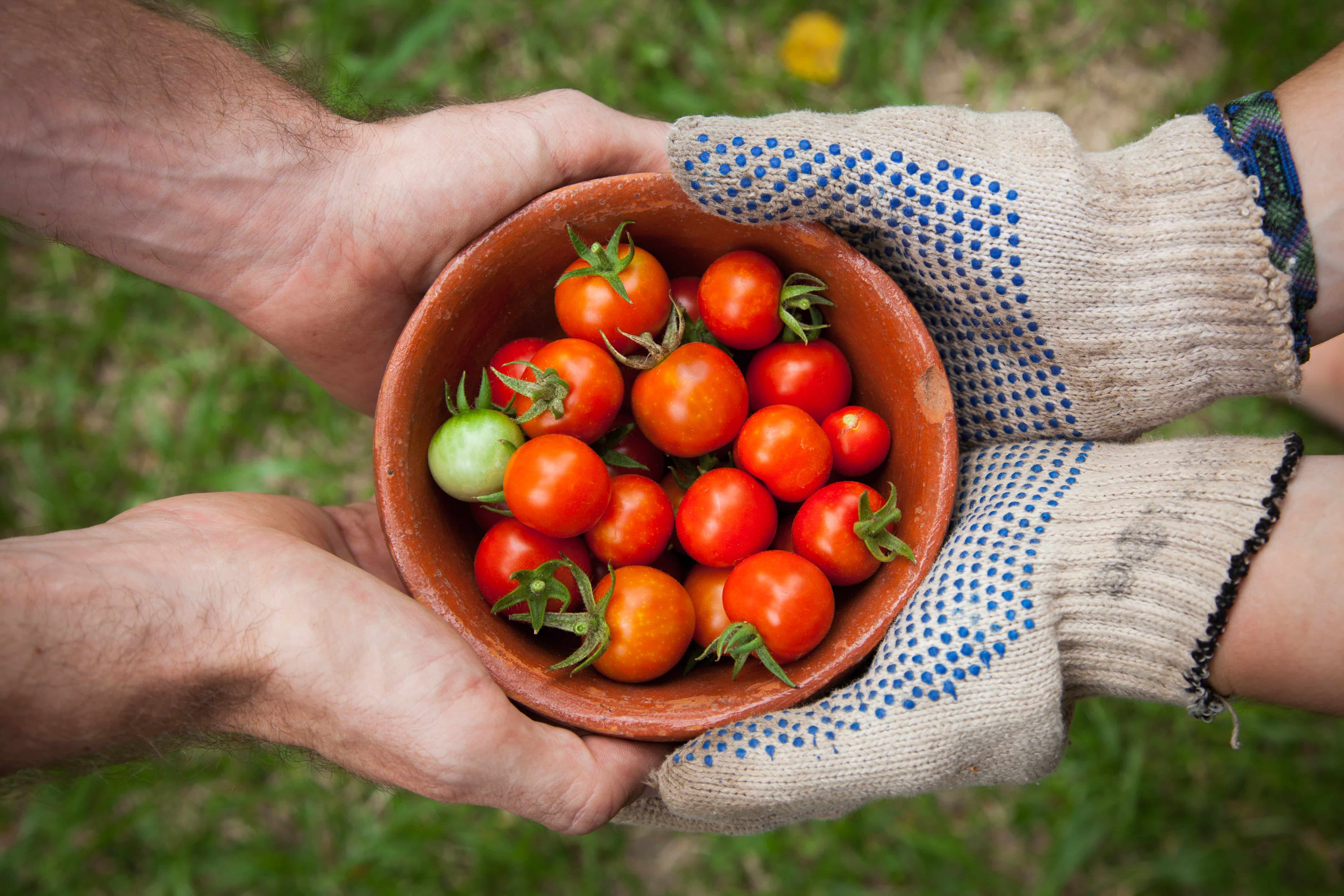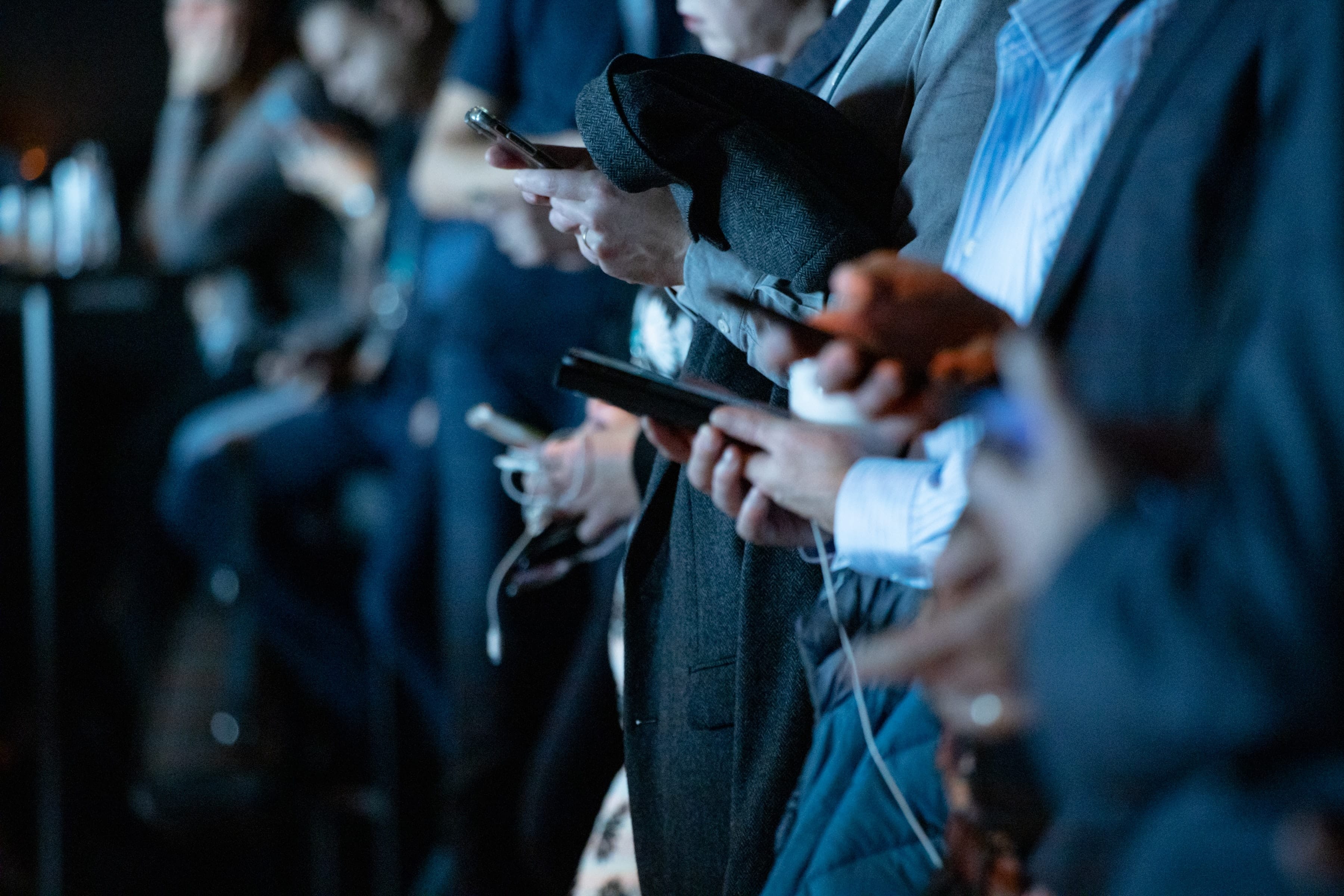
“3 Ways the Modern World Destroys Your Joy, Hope, and Faith in Everything” is written by Joe Terrell, content manager at CareyNieuwhof.com. Joe’s writings for Medium, Relevant, Carey Nieuwhof, and his personal blog, Instrument of Mercy, have been read by over three million people.
Let’s say you invented a time machine.
But this time machine can only move in one direction through time: Backward.
Therefore, if you use the machine, there’s no coming back. So, here’s the question:
Where would you go?
When would you choose to live?
This inquiry is more complex than it initially appears. Strip the romanticism from any era of history, and you’re left with the unsettling reality that the fate of human society has often been at the mercy of disease, famine, and warfare – forces entirely outside the control of the average person.
In The Better Angels of Our Nature, Steven Pinker writes,
“It is easy to forget how dangerous life used to be, how deeply brutality was once woven into the fabric of daily existence. Cultural memory pacifies the past, leaving us with pale souvenirs whose bloody origins have been bleached away.”
Or, in the words of Thomas Hobbes, life – in the not-too-distant past – was “nasty, brutish, and short.”
If you want to “practice gratitude,” study history. Nothing will reframe your perspective on the “good ‘ole days” quite like an honest appraisal of what our ancestors used to accept as “normal.” The amenities and health outcomes we take for granted today would be viewed as miraculous a century or two ago.
If you want to “practice gratitude,” study history. Nothing will reframe your perspective on the “good ‘ole days” quite like an honest appraisal of what our ancestors used to accept as “normal.”
By any conceivable metric (life expectancy, education, literacy, human rights, poverty, infant mortality, food insecurity, etc.), you’d be hard-pressed to find an era of history in which a majority of the Earth’s populace was healthier, safer, and freer than we are today.
We live, arguably, in the least violent and most stable era of human history. To quote the first-century Roman poet, Ovid, “Let others praise ancient times; I am glad I was born in these.“
It’s amazing how quickly the “time machine question” shifts from “Where would you go?” to “Would you use it all?” (And, depending on your race or gender, that shift may occur much quicker).
None of this, of course, suggests that those of us who live in the developed world are members of a utopian society or that we should just “shut up and be grateful.” The benefits of modern society don’t spare us from a broad spectrum of existential threats and injustices – and I’ll address some of those realities in the final section of this article.
At the same time, why is it that despite the blessings of the modern world, we find ourselves more stressed, lonely, and angry than ever before?
From dating apps to a “hunger for the apocalypse,” here are three ways the modern world destroys your joy, hope, and faith in everything (and how to fight back).
1. The Hidden Curse of Too Many Choices

Imagine you’re standing in a hallway lined with doors.
The hallway extends forever into infinity, and you’re told behind each door is a prize.
While you can open as many doors as you want, you can only choose one prize to take home. And once you choose a prize, you can’t open any more doors.
Here’s the dilemma: You may find a prize behind a door you like, but who’s to say the prize behind the next door won’t be .0005% better? You should probably open it just to be sure, right? But what if a prize ten doors down is 1000% better? You should probably open that door too.
The Infinite Hallway is a thought experiment designed to illustrate the tyranny of having too many options. I first came across it in comedian Aziz Ansari’s book Modern Romance, where he used the Infinite Hallway to explore how dating apps can increase relationship anxiety and generate a “fear of missing out” (a better match, after all, could just be a swipe away).
In one famous study, people in a supermarket were less likely to purchase a jar of jam when presented with more flavors and varieties because they were more anxious about making a regrettable choice in the face of so many options.
In The Paradox of Choice, Barry Schwartz writes,
The existence of multiple alternatives makes it easy for us to imagine alternatives that don’t exist—alternatives that combine the attractive features of the ones that do exist. And to the extent that we engage our imaginations in this way, we will be even less satisfied with the alternative we end up choosing.
The consequences of too much choice extend far beyond our relationships, jam preferences, and endless Netflix scrolling. For example, a little over a hundred years ago, your career path was set before you were born. You’d do the work or learn the trade of your father (as he did with his father). And, if you were a woman, your career options were far more limited.
For the most part, we don’t live in that world anymore. And that’s a good thing. But, when faced with the illusion of infinite choice – in our careers, relationships, etc. – we hold onto the false hope that perfection is waiting just around the corner.
We mourn choices not made and roads not taken because we’re more aware of life’s possibilities and alternative branches. We also have more choices and opportunities than generations past.
However, the biggest problem with the Infinite Hallway is how we trick ourselves into assuming our hallway is infinite – as if we’ll always have time to explore more options and possibilities. But we don’t have infinite time; we’re finite beings – we run out of time.
So, we need to reframe our thinking. Every decision you make is a trade-off that closes the doors to other opportunities. However, it’s the act of choosing in the face of so many choices that makes your decision so special.
In 4,000 Weeks: Time Management for Mortals, Oliver Burkeman makes the case for “settling,” but not in the negative sense that we typically attribute to that word.
Speaking about a couple deciding to marry, Burkeman writes:
In consciously making a commitment, they’re closing off their fantasies of infinite possibility in favor of the “joy of missing out:” the recognition that the renunciation of alternatives is what makes their choice a meaningful one in the first place….When you can no longer turn back, anxiety falls away, because now there’s only direction to travel: forward into the consequences of your choice.
In a world of (seemingly) infinite choice, settling may be the most practical, common sense, and romantic gesture of all.
Every decision you make is a trade-off that closes the doors to other opportunities. However, it’s the act of choosing in the face of so many choices that makes your decision so special.
2. The Commodification of Loneliness

Popular television shows like Friends, How I Met Your Mother, The Big Bang Theory, Modern Family, and New Girl depict modern life as an endless parade of zany misadventures, unannounced visitors, and group hangouts.
No one is ever bored.
No one is ever lonely.
And yet we find ourselves more likely to spend a Friday evening watching the very television shows that promise us a lifestyle of tribal community than we are to experience it for ourselves.
And, paradoxically, we are not alone.
According to the most recent General Social Survey, the number of Americans who say they have no close friends has tripled over the past three decades, and the average number of people a person feels like they can talk about “important matters” has dropped from three to two.
In Find Your People, Jennie Allen writes,
We’ve replaced intrusive, real conversations with small talk, and we’ve substituted soul-baring, deep, connected living with texts and a night out together every once in a while, because the superficial stuff seems more manageable and less risky.
When people attain wealth or their income increases, one of the first things they purchase is isolation. And that’s because self-sufficiency is still viewed as one of the highest benchmarks of personal success.
Self-sufficiency is indeed a noble goal, but it could come with a trade-off to which many people may find themselves woefully unprepared.
Tribe: On Homecoming and Belonging, combat journalist Sebastian Junger writes,
“A wealthy person who has never had to rely on help and resources from his community is leading a privileged life that falls way outside more than a million years of human experience. Financial independence can lead to isolation, and isolation can put people at a greatly increased risk of depression and suicide. This might be a fair trade for a generally wealthier society – but a trade it is.”
People are, for lack of a better term, social animals. We all yearn for the support and validation that comes from being accepted by a like-minded community. But as we become more disillusioned with the trappings of modernity, we increasingly look toward technology to fill the relational void in our lives.
In The Village Effect, research Susan Pinker writes,
“In a short evolutionary time, we have changed from group-living primates skilled at reading each other’s every gesture and intention to a solitary species, each one of us preoccupied with our own screen.”
Surface-level “connections” and validation from strangers will never be enough to replace our innate desire to be known, celebrated, and challenged by people willing to risk the social cost of vulnerability.
Surface-level “connections” and validation from strangers will never be enough to replace our innate desire to be known, celebrated, and challenged by people willing to risk the social cost of vulnerability.
3. The Apocalyptic Spectacle of “Politics as Entertainment”

You should probably stop watching the news.
In Factfulness: 10 Reasons Things Are Better Than You Think, Swedish physician and TED Talk speaker Hans Rosling points to “selective reporting” as one of the primary drivers of anxiety in the modern world.
A leftover survival mechanism, our brains are naturally wired to respond to negative stimuli more than positive stimuli. The news media caters to this in-born “negativity bias” by subjecting us to “a never-ending cascade of negative news from across the world.“
Rosling continues:
“The news constantly alerts us to bad news in the present. The doom-laden feeling that this creates in us is then intensified by our inability to remember the past; our historical knowledge is rosy and pink, and we fail to remember that one year ago, or ten years ago, or 50 years ago, there was the same number of terrible events, probably more.”
Selective reporting is further exacerbated by social media algorithms that prioritize divisive and inflammatory content to increase advertising revenue. Thus, the creation of an insidious feedback loop: Since we’re more likely to interact with negative content, we’re fed more negative content by social media and news agencies.
However, it’s not enough for the news to be negative for us to want to engage with it – it also has to be entertaining.
We follow the news the same way we’d watch a season of Breaking Bad, Game of Thrones, Stranger Things, or The Bachelor – hooked by dramatic storytelling, outrageous personalities, villains we love to hate, “OMG!” moments, and “tune in next time” cliffhangers.
And that’s by design.
Most hot-button political issues are irreducibly complex, but many news organizations and politicians know that “complexity” doesn’t attract viewers, increase clicks, and motivate voters.
In Empire of Illusion: The End of Literacy and the Triumph of Spectacle, Chris Hedges writes,
In an age of images and entertainment, in an age of instant emotional gratification, we neither seek nor want honesty or reality. Reality is complicated. Reality is boring. We are incapable or unwilling to handle its confusion.
At the end of the day, most of us don’t watch or listen to the news to gain a greater appreciation of the world’s complexity and all of its moving parts. We select the media outlet that will affirm our pre-existing beliefs and make us feel better about not being on the “other side.”
Most hot-button political issues are irreducibly complex, but many news organizations and politicians know that “complexity” doesn’t attract viewers, increase clicks, and motivate voters.
And all of this negativity bias, fear-mongering, and curated resentment inevitably leads to something much, much worse.
In Our Own Worst Enemy, Tom Nichols, Professor of National Affairs at the U.S. Naval War College, writes,
“Affluent societies are often gripped by a ‘hunger for apocalypse,’ a wish for a great struggle that could give drama and deeper meaning, a frission of risk, to the otherwise dull rhythm of life in a country that meets almost all of the needs of its population at almost all times, and entertains them continuously while doing so.”
In an age of relative comfort, safety, and convenience, we need to better discern what’s worthy of our attention, outrage, and activism. And, trust me, watching the news isn’t going to help with that.
Stop watching network news. Don’t listen to talk radio. Depolarize your social media newsfeeds. Unfollow any organization or personality that makes their living ridiculing people who think or believe differently than you. Seek complexity, and if you don’t have the patience to read “boring news,” then maybe refrain from commenting on every current event.
And, perhaps most important of all, keep yourself grounded by keeping these words from minister Frederick Buechner close to your heart:
Here is the world. Beautiful and terrible things will happen. Don’t be afraid.
A Requiem For What Could Be

I recently encountered a quote from Seneca, a first-century Roman philosopher: “If you wish to be loved, love.”
Or, in other words, whatever you want to see more of in the world, do so in your own life.
I was struck by how similar Seneca’s words were to Jesus’s command in the Gospel of Matthew:
“Ask yourself what you want people to do for you, then grab the initiative and do it for them.”
Matthew 7:12 (The Message)
Do you want more kindness in the world? Then be more kind. Do you want more justice? Then seek justice. Do you want more mutual understanding and depolarization? Then reconsider where you get your news and how you perceive “the other.” Strive to adopt a non-transactional, proactive approach to loving yourself and others well.
Our lives are interconnected webs of relationships, responsibilities, and influence. In a world of foreign policy crises, rampant natural disasters, and economic instability, there’s not much in this life you can control. Still, I believe each of us has been specially positioned to cultivate human flourishing in our little pocket of the universe – be it in our marriages, neighborhoods, or workplaces.
I believe each of us has been specially positioned to cultivate human flourishing in our little pocket of the universe – be it in our marriages, neighborhoods, or workplaces.
But we live in a highly individualistic consumerist culture, and we’re conditioned from a young age to place the fulfillment of our personal desires above the common good.
We face broad existential threats – nuclear annihilation, ecological collapse, systemic injustice, the rise of authoritarianism, income inequality, etc. – and people all around the world still die from warfare, famine, and preventable disease. Humanitarian crises and exploitation abound.
But we may be living in the first era of human history in which a majority of that suffering and injustice can be prevented or held to account. We have the awareness, knowledge, technology, and resources to continue the global trend toward peace, prosperity, higher quality of life, and solution-focused public policy.
We just lack the perspective, imagination, and agency to believe we can do anything about it.
We want from the world what we are so often hesitant to dole out to others – justice, love, harmony, understanding, and kindness. In the words of architect and futurist R. Buckminster Fuller, “If success or failure of this planet and of human beings depended on how I am and what I do…How would I be? What would I do?“
We want from the world what we are so often hesitant to dole out to others – justice, love, harmony, understanding, and kindness.
Or, better yet, to quote Jesus’s words in the Sermon on the Mount:
“In a word, what I’m saying is, Grow up. You’re kingdom subjects. Now live like it. Live out your God-created identity. Live generously and graciously toward others, the way God lives toward you.”
Matthew 5:48 (The Message)
I love the bluntness of Eugene Peterson’s translation.
It’s time to grow up.
And live and love like you’re running out of time.
